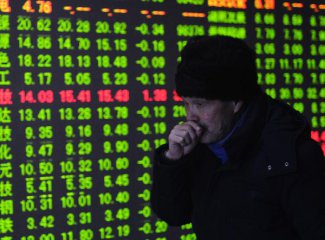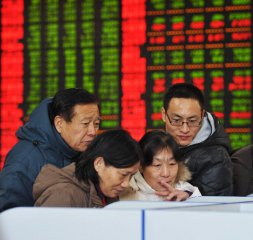
China's benchmark stock index could rise another 10 percent on the back of "market positive" Chinese policy announcements, John Woods, chief investment officer for Asia Pacific at Credit Suisse, said Wednesday.
Woods' comments to CNBC came in reaction to Chinese Premier Li Keqiang's speech Tuesday at the National People's Congress, China's legislature.
Li highlighted risks threatening the world's second-largest economy as the government lowered its economic growth target range to between 6 percent and 6.5 percent.
In response, Li unveiled stimulus measures, including infrastructure spending and cuts in taxes and fees worth nearly 2 trillion yuan ($289.28 billion). Those included cuts in the value-added tax rate for manufacturing, transportation and construction.
"We took the decisions as being market positive," said Woods. "We think that the focus on infrastructure clearly lends itself to those commodities and equities which are in that space and we think will perform well."
He added that the VAT reductions will have a positive impact on a host of sectors, including consumer staples, consumer discretionary, materials and industrials and energy.
"Those are the sectors which our analysis suggests will benefit with an uptick in earnings growth of between 2 and 3 percent, which is meaningful, which is substantial," Woods said.
"So more broadly, the Shanghai composite I think's got another 10 percent upside before I start to take profit," he said. "But, of course, if the retail investor starts to engage, it could move substantially higher."
'Biggest beneficiary'
Shanghai stocks have been on a tear this year, gaining more than 22 percent through Tuesday. That came after a slump in excess of 24 percent in 2018, the worst performance in a decade, on concerns about China's slowing economy and the trade war with the United States.
Speaking earlier on CNBC's "Squawk Box," Woods said Credit Suisse has turned neutral on global equities overall, but it remains overweight on China.
Woods added that other regions and economies — namely Southeast Asia, South Korea and Taiwan — can benefit from Li's announced measures to boost the world's second-largest economy.
"But by far the biggest beneficiary will be the domestic industries in China," Woods said. "And this is among the reasons why we remain overweight this market."
In terms of risks to the scenario, Woods cited the possibility of a breakdown in trade talks between the United States and China and that the latter's economy slowing more than expected.
But he said he is optimistic of at least a "reasonably positive outcome" for the ongoing trade war, adding that if the two sides can agree to reduce or eliminate imposed tariffs then investors will react positively.
"That could prove another boost to the market," he said.
And on China's growth, which Credit Suisse is forecasting at 6.2 percent, there is also the possibility it will have to be revised higher, he said.
"I think with the VAT cut, frankly, the risk is to the upside in terms of our GDP growth outlook," Woods said.
Source: CNBC























Latest comments